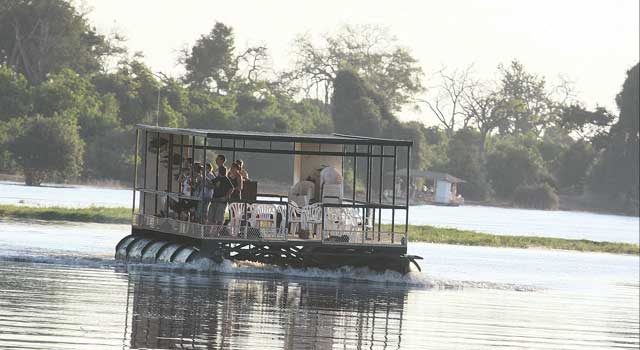Gofaone Nina Tladi
I saw a unit trust advert where a couple, whom I assume are Batswana, are loved up in front of the Eiffel Tower. The ad tag line said, and I paraphrase: in 5 or 10 years, I too could be in Paris on a Baecation. But 5 or 10 years?!!! That is way too long. I want to go to Paris, as part of a full Euro tour of England, Greece, France, Italy, Portugal and Spain when I turn 30. That is 2 years.
I do not want to wait that long. I am a young, very attractive single woman, and if the daily reminders of my impending doom as a wife and mother are real, and the responsibilities will indeed suck the life, joy and money out of me I must enjoy my youth as much as possible.
If this is true, I have about 2-3 years before my life essentially ends, so Moghel needs to go on that Euro trip. I could save for that trip for 2 years but I am always painfully aware that my Relationship Manager, bless his heart, is ready to swoop in to make my travel dreams a reality with a personal loan that can be approved within 48 hours. I could travel sooner and maybe even travel business class or first class if I book early enough, use Airbnb premium for accommodation and go on as many “touristy” activities as I want. Travelling first class on Emirates is on my bucket list. My Instagram would be lit!!
Saving is a struggle for me and for most people, personal loans have now taken the place of savings. I am not, by any means anti-loans, they have their merits and have helped a lot of people but I have seen how crippling they can be. How many of us have savings in the form of an emergency fund, short-term and long-term savings? Let’s discuss the first pot of savings, the emergency fund.
We shall unpack the other two in future columns. An emergency fund is a saving plan or a stash that is there for emergencies, just as the name suggests. An emergency fund must have at least 3-6 months’ worth of cash, enough to cover your expenses for that period i.e. rent, school fees and all the accompanying expenses, medical aid, loan repayments, insurance premiums etc. In addition, the money must be easily accessible but not too accessible lest it turns into a top up account during the months.
Another thing to consider is that after you use the money, you must get it back up to what it was prior. Lastly you have to always align it to your current expense and take into account possible any future increases in expenses, for example, some insurance premiums increase per annum so you need to account. In the wise words of the Notorious B.I.G, “more money, more problems” and this is true, the more money we make the more indebted we become and we must adjust our emergency funds when our expenses rise. The issue with having an emergency fund is that you can only use it for emergencies, the definition of which can be very subjective, and every so often we find ourselves using it for non-emergencies especially if we have easy access to it through our banking channels.
These are examples of emergencies: car problems, medical bills-medical aid does not cover everything unfortunately, home repairs and the sad reality of the tough economic climate, job loss. These are all very stressful situations but many of us have found ourselves dealing with at least one of these. The saying “failure to plan is planning to fail”, having an emergency fund should be a part of my plan to succeed and be ready when life happens. I called that Investment Manager and asked for their assistance in setting up an emergency fund with their money market funds, which I researched and found gave a better return than my savings account and transferred the little money. I was so proud of myself for taking that first step but I’m still a long way off. Hopefully, I am not 5 to 10 years away from having a decent emergency fund.
Saving requires patience, a virtue that is under a lot of pressure from the quick fixes, our parents and/or society and of course we have to look good for the ‘gram. Saving doesn’t seem to be encouraged or celebrated. It is really hard. An emergency fund is a non-starter, we all need one. While I save to go to Paris for my 30th birthday, I can go to Kasane this year while I build up my emergency fund.
PS: You don’t have to be a hero, you just have to be what most people aren’t, consistent. It is the small things done consistently over time that make the greatest impact. Next week we discuss part 2 of our saving series- short term savings.

